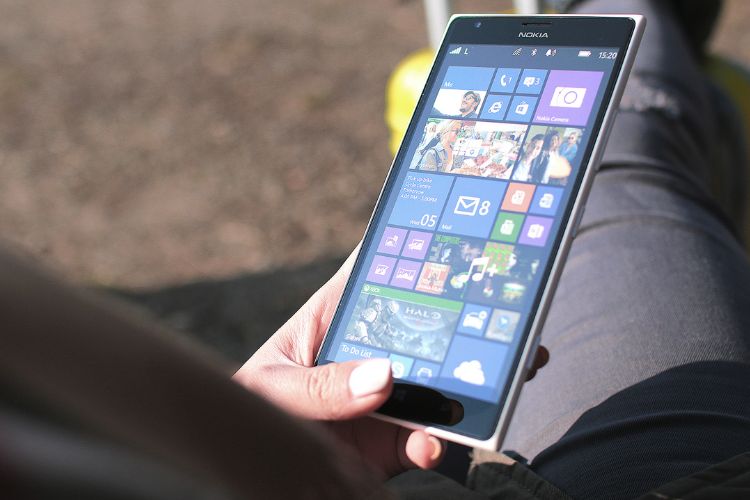In recent years, there has been a seismic shift in the world of marketing, driven by a new force known as influencers. These individuals, who have built dedicated followings on various social media platforms, have become instrumental in shaping consumer behavior and influencing purchasing decisions.
How Influencers Have Transformed Modern Marketing? Influencers have significantly transformed modern marketing by leveraging their authenticity and social reach to connect with target audiences in a more relatable and engaging manner.
Contents
How Influencers Have Transformed Modern Marketing:
| Transformation Aspect | Description |
|---|---|
| Authenticity and Relatability | Influencers bring authenticity and relatability to marketing by sharing personal experiences and genuine product reviews. |
| Audience Engagement | They engage with target audiences on social media platforms, creating two-way conversations and fostering community. |
| Trust and Credibility | Influencers are perceived as trustworthy sources, building credibility for products or brands they endorse. |
| Content Creation | They produce diverse and creative content, providing a fresh and engaging perspective on products and services. |
| Targeted Marketing | Influencers can target specific niches and demographics, reaching audiences that traditional advertising may miss. |
| Influence on Purchasing | Their recommendations and endorsements have a direct impact on consumer purchasing decisions. |
| Diversification of Channels | The rise of influencers has led to the diversification of marketing channels beyond traditional media. |
| Shift in Advertising Budgets | Brands allocate significant budgets to influencer marketing, recognizing its effectiveness. |
| Challenges and Regulations | There are emerging challenges and regulations related to influencer marketing, including transparency and disclosure. |
| Data-Driven Insights | Brands use data analytics to measure the ROI and effectiveness of influencer campaigns. |
Influencers have revolutionized modern marketing by emphasizing authenticity, audience engagement, and trust, reshaping how brands connect with consumers in the digital age.
Key Takeaways
- Authenticity Matters: Influencers bring authenticity and relatability to marketing, fostering trust through personal experiences.
- Engagement and Community: They engage with audiences on social media, creating two-way conversations and building a sense of community.
- Credibility Boost: Influencers are seen as credible sources, enhancing the reputation of products and brands they endorse.
- Targeted Approach: Influencers allow for precise audience targeting, reaching specific niches and demographics effectively.
- Diverse Marketing Landscape: Influencer marketing has diversified marketing channels, shifting advertising budgets and driving measurable ROI while introducing regulatory challenges.

The Emergence of Influencer Marketing
1. Defining Influencer Marketing
Influencer marketing is a form of marketing where brands collaborate with individuals, known as influencers, to promote their products or services.
These influencers have gained credibility and authority within a specific niche or industry, making their recommendations and endorsements highly influential among their followers.
2. The Rise of Social Media
The explosion of social media platforms, such as Instagram, YouTube, TikTok, and Facebook, provided fertile ground for the growth of influencer marketing.
These platforms allowed individuals to create and share content, cultivate followings, and engage with their audiences on a personal level.

3. The Power of Authenticity
One of the key factors that set influencer marketing apart from traditional advertising is authenticity. Influencers are relatable figures who often share their real-life experiences and opinions.
Their authenticity resonates with audiences weary of overly polished and impersonal advertising campaigns.
How Influencers Have Transformed Modern Marketing
1. Humanizing Brands
Influencers have humanized brands by acting as relatable, trustworthy intermediaries between companies and consumers.
Their authentic content and personal stories create emotional connections that traditional advertising struggles to achieve.
2. Niche Expertise
Influencers often specialize in specific niches or industries, allowing brands to reach highly targeted audiences.
Whether it’s beauty, fitness, travel, or tech, influencers can connect brands with the precise demographics they want to reach.
3. Content Creation
Influencers are skilled content creators who produce high-quality, engaging content. This content serves as a valuable marketing asset, as brands can repurpose it for their own channels, increasing their visibility and credibility.
4. Word-of-Mouth Marketing
Influencers essentially engage in word-of-mouth marketing on a large scale. When influencers recommend a product or service, it feels like a personal recommendation from a trusted friend, which carries significant weight with their followers.

5. Storytelling
Influencers are adept at storytelling, crafting narratives around products or services that captivate their audience. This storytelling ability helps brands convey their value proposition in a compelling way.
The Impact on Consumer Behavior
1. Decision-Making Process
Influencers have become a crucial part of the consumer decision-making process. Many consumers turn to influencers for product recommendations, reviews, and demonstrations before making a purchase.
2. Trust and Credibility
Influencers have earned the trust and credibility of their followers through consistent, authentic content. This trust extends to the brands they endorse, making influencer recommendations highly influential.
3. FOMO (Fear of Missing Out)
Influencers often showcase products and experiences, creating a sense of FOMO among their followers. This fear of missing out drives consumer interest and motivates purchases.
4. User-Generated Content
Influencer-generated content often inspires user-generated content. When consumers see influencers using a product, they are more likely to share their own experiences on social media, further amplifying the brand’s reach.
The Changing Landscape of Advertising
1. Shift in Advertising Budgets
Brands are reallocating their advertising budgets to include influencer marketing. Traditional advertising channels, such as TV and print, are seeing a decline in favor of influencer partnerships.
2. Micro-Influencers
Micro-influencers, who have smaller but highly engaged followings, have gained prominence. Brands recognize the value of these influencers in reaching niche audiences effectively.
3. Influencer Agencies
The rise of influencer agencies has simplified the influencer marketing process for brands. These agencies specialize in identifying and connecting brands with suitable influencers, streamlining campaign management.
4. Measurement and Analytics
Brands are increasingly using measurement and analytics tools to track the performance and ROI of influencer marketing campaigns. Data-driven insights are driving more effective influencer collaborations.
Challenges and Ethical Considerations
1. Authenticity vs. Commercialization
Maintaining authenticity while engaging in commercial partnerships can be challenging for influencers. Audiences may perceive overly sponsored content as disingenuous.
2. Disclosure and Transparency
Ethical considerations surrounding disclosure and transparency have arisen. Regulations require influencers to disclose paid partnerships, but compliance varies.
3. Influencer Saturation
The influencer landscape is becoming saturated, with numerous influencers vying for attention. Brands must carefully select influencers to avoid oversaturation.
The Future of Influencer Marketing
1. Continued Growth
Influencer marketing is poised for continued growth as brands recognize its effectiveness in reaching and engaging audiences. New platforms and technologies will likely further expand its reach.
2. Authenticity Remains Key
Authenticity will remain paramount. Brands will seek influencers who genuinely align with their values and can convey authenticity to their audiences.
3. Regulation and Transparency
Regulation and transparency in influencer marketing are likely to increase. Influencers and brands will need to adhere to stricter guidelines and disclose partnerships clearly.
4. Evolving Metrics
Metrics for measuring influencer marketing success will evolve beyond likes and engagement. Brands will focus on ROI, conversions, and long-term brand loyalty.
Conclusion
Influencer marketing has not only transformed modern marketing but has fundamentally reshaped how brands and consumers interact.
It has elevated authenticity, humanized brands, and shifted advertising budgets.
The influence of influencers on consumer behavior is undeniable, and their role in marketing is likely to continue evolving in the digital age.
Brands that harness the power of influencer marketing effectively will find themselves well-positioned to connect with their target audiences and thrive in the ever-changing marketing landscape.






